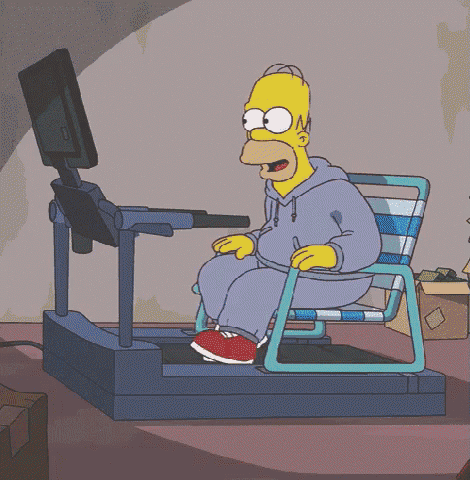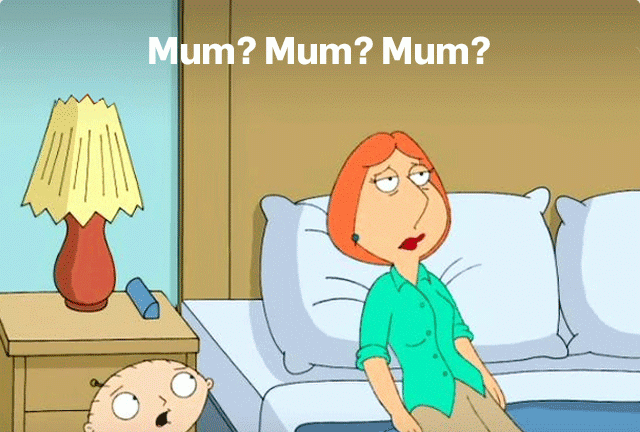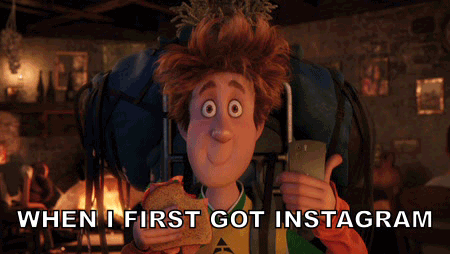Did you know that you have a “health personality?”
You’ve probably heard that a “Type A” personality—one who drives himself or herself hard, works overtime, and has difficulty relaxing—is more at risk for a heart attack.
There are other types of personalities at risk too.
The so-called “Type D,” for example, is described as someone who tends to dwell on negative emotions, and who is prone to depression and anxiety. These types, according to one study, may face three times the risk of heart problems, and a greater risk of overeating, as well.
“Psychological characteristics matter for physical well-being,” says Christopher Peterson, former professor of psychology at the University of Michigan, “and the magnitudes of the effects are meaningful….Most generally, psychological characteristics matter when our concern is with physical health, perhaps as much or even more than the usual biological risk factors of cholesterol, blood pressure, and body-mass index.”
In other words, your personality may have more to do with your health than other common risk factors.
Types of Health Personalities That Put You At Risk
Rebecca Kiki Weingarten, MScED, MFA, co-founder of Daily Life Consulting in New York, told WebMD, “It’s important to know what type of health personality you are. The more clearly you understand yourself, the less destructive you will be … or, in more positive terms, the most constructive you will be.”
Researchers have come up with all sorts of different personality types. In addition to the Type A and D, they’ve also focused on the so-called “Big Five,” the main personality types reported in modern-day research. These include:
- Openness
- Conscientiousness
- Extraversion
- Neuroticism
- Agreeableness
These too, can affect our health. In one 2010 study, those with a high level of neuroticism and a low level of conscientiousness, for example, were less healthy, overall.
Considering all this, I decided to apply today’s research to seven of the most common “writing health personalities.”
To make sure your writing practice isn’t increasing your risk of health problems down the road, choose the one that most closely describes you, and then follow the action steps to enjoy a healthier, perhaps even longer life.
1. Type FLO
Focus foreverus without movingus skeletus
You are the writer who becomes totally absorbed in your work to the point that you barely move for an hour or more while you’re writing. You fall into the flow and rarely look up. You probably write sitting down and forget all about your physical body while you explore the worlds of your imagination.
This can result in great writing sessions in which you get a lot of words written, but you may pay for it later in physical aches and pains.
At risk for…
- back pain
- neck pain
- shoulder pain
- stiffness
- joint pain
- hip pain
- other types of pain
To reduce risk: Move more. Set a timer and get up every 30 minutes to walk around. Use a small glass for water or other beverage and refill it frequently. This is the most important thing you can do to avoid pain.
Another good option is to vary your work stations. Work sitting down for a half hour, then stand up for a half hour, then sit down again. Keep shaking it up. Use a different chair. Write lying down for a bit.
Keep moving. The more you do it, the more it will become a habit until it will feel strange to sit and write without moving for an hour or more.
2. Type CHU
Justus uno more bagus of chipses delicius
You are the writer who requires energy to fuel your genius. If you’re writing, you’re chewing…on something. If you don’t have something nearby, you’ll get up and go get it.
Unfortunately, the options are typically less than healthy, because you probably don’t think much about them. You’re simply responding to your brain’s craving for something tasty, crunchy, or chocolatey. Without these munchies, you grow restless and have difficulty focusing.
At risk for:
- weight gain
- blood sugar ups and downs (which could lead to type 2 diabetes)
- energy crashes
To reduce risk: Prepare for the munchies. Create healthy snacks that are easily accessible during your writing times so you won’t be tempted to eat the unhealthy stuff.
Some good options include cut-up veggies, any kind of fruit, yogurt, low-fat popcorn (air-popped is best), whole-grain crackers, a boiled egg, a handful of nuts (don’t go overboard), or any kind of tea. Find other good options here.
3. Type FRET
Always stressitus outicus argh
You are the writer who is always on the go. When you’re not writing, your blogging. Not blogging? You’re posting on social media. Not doing that? You’re creating new Facebook ads or updating your website.
When one project is published, you’re already at work on the next. You’re afraid of falling behind, and have a deep desire to succeed in the publishing business.
At risk for:
- burnout
- cardiovascular problems
- anxiety and depression
- tension headaches
To reduce risk: Make sure that you’re engaging in a stress-relieving activity at least once a day, and that you’re spending at least 30 minutes doing it. Good options include yoga and tai chi, taking a walk, enjoying a hot bath, spending time with a beloved pet, playing a game with your kids, gardening, crafting, and playing sports.
In addition, schedule in a short vacation at least once every three months. You probably won’t want to do this—you’ll tell yourself that you don’t have time, or that there are too many other things to do.
To get past your own personality, get out the calendar and schedule those weekends right now. You don’t have to decide where you’re going to go or what you’re going to do. Just schedule them. Try to take at least four days.
4. Type BUZ
Drownicus sorrowses un celebraticus successes boozitis
You love your wine and champagne, and you tend to imbibe at all possible occasions. New publishing contract? Pop the cork. Great book launch? Let’s have some wine. Five-star reviews? Where’s the bubbly?
When things don’t go so well, you also turn to your favorite alcoholic beverage. Maybe the book didn’t sell so well, the contract fell through, or you’re struggling through your sophomore novel. A little drink can help soothe the pain.
This can become a health risk for men who consume more than two drinks a day, and women who consume more than one. Yes, there are benefits to drinking a little wine, as long as you’re healthy otherwise. But even light drinking can be dangerous for smokers, those who live a sedentary lifestyle, and those who are overweight, according to a recent 2017 study.
In another recent study, researchers reported: “Alcohol consumption, even at moderate levels, is associated with adverse brain outcomes including hippocampal atrophy. These results support the recent reduction in alcohol guidance in the UK and question the current limits recommended in the U.S.”
At risk for:
- high blood pressure
- some cancers
- dementia
To reduce your risk: Limit your alcohol consumption to the recommended one drink a day for women, and two a day for men. Choose other non-alcoholic celebratory drinks to commemorate your successes, and a soothing cup of tea for the disappointments. (Find some yummy tea options here.)
5. Type SED
Avoidus treadmillius like the plagueus mortitis
You are the writer who “hates” to exercise. Hates it! You simply cannot bring yourself to “work out” like other people do. It seems like such a waste of time, and when you think about it, you just can’t describe your revulsion.
At risk for:
- overweight
- heart disease
- cancer
- premature death
To reduce your risk: Find something active that you like to do. The key is to have fun so you don’t realize you’re exercising.
Maybe you can get together with friends to take a walk or play a fun game of volleyball or softball. Take your shopping self to the mall and require yourself to walk the length of it back and forth before you can stop in any store.
Sign yourself and a partner up for a dancing class, or get yourself a brand new bike and use it rather than the car to run simple errands, or ride together with other family members.
If you haven’t found something yet, keep looking. Of all the things you can do to protect your health, exercise is by far the best, according to decades of collected research. Leading a sedentary lifestyle, on the other hand, is one of the most dangerous things you can do for both your mental and physical health.
6. Type FAM
Writicus beforis family awakus un after bedicus exhaustius
You are the writer committed to his or her family. You hate to take time for yourself when they need you, so you relegate your writing time to the hours before they wake up or after they go to sleep. Unfortunately, this often means that you, yourself, don’t get as much sleep as you need.
At risk for:
- overweight (lack of sleep triggers unhealthy eating)
- traffic accidents
- diabetes
- cardiovascular disease
- premature death
To reduce risk: Make sleep a priority. If it’s impossible because of the hours you’re keeping, change them. Work it out with your family so you can be off the hook an hour a day, or at least every other day.
It’s worth it even to hire a babysitter if you have to so you can get your writing in without having to tax your health.
7. Type TECH
Gadgetitus addicticus maximus
You are the writer who panics when your phone is out of sight. You can be found with it in your hands nearly any time of the day. When you’re not on your phone, you’re on your computer or tablet, scrolling, texting, researching, and consuming entertainment.
Social media and online marketing is important for writers, but there are health dangers to being addicted to your gadgets. Research has shown that when we get too reliant on them, we risk our health in a number of ways.
At risk for:
- neck pain
- dry eye syndrome
- anxiety
- depression
- sleep problems
- short attention span
To reduce risk: Set specific times to check your phone and social media accounts, then put the phone out of site and don’t allow yourself to look at it again until your next scheduled time. Have a container in your home where you put your phone during the dinner hour, so it’s out of reach.
Some other good options include clearing off the home pages on your gadgets so the apps aren’t there to tempt you. (When you have to go looking for them, it’s easier to stop yourself.) Make it a habit to turn off the phone or put it out of reach when you’re in the car. Ban all gadgets from the bedroom (they disrupt sleep). Work with your family to set rules that are beneficial to you all.
Which personality type are you?
Sources
Angela Haupt, “How Your Personality Affects Your Health,” US News, September 22, 2010; http://health.usnews.com/health-news/family-health/heart/articles/2010/09/22/how-your-personality-affects-your-health.
Christopher Peterson, “Personality and Health,” Psychology Today, February 21, 2011, https://www.psychologytoday.com/blog/the-good-life/201102/personality-and-health.
“What Is Your Health Personality?” WebMD, 2005; http://www.webmd.com/balance/features/what-is-your-health-personality#1.
Deary, I. J., Weiss, A., & Batty, G. D., “Intelligence and personality as predictors of illness and death: How researchers in differential psychology and chronic disease epidemiology are collaborating to understand and address health inequalities,” Psychological Science in the Public Interest, 2010; 11: 53-79, https://www.researchgate.net/publication/261934933_Intelligence_and_Personality_as_Predictors_of_Illness_and_Death_How_Researchers_in_Differential_Psychology_and_Chronic_Disease_Epidemiology_Are_Collaborating_to_Understand_and_Address_Health_Inequalit.
“Alcohol: Balancing Risks and Benefits,” The Nutrition Source, Harvard University, https://www.hsph.harvard.edu/nutritionsource/alcohol-full-story/.
Jeremy Staff, Jennifer Maggs, “Alcohol and Cigarette Use From Ages 23 to 55: Links With Health and Well-Being in the Long-Term National Child Development Study,” Journal of Studies on Alcohol and Drugs, 2017; 78 (3): 394; http://www.jsad.com/doi/10.15288/jsad.2017.78.394.
Anya Topiwala, “Moderate alcohol consumption as risk factor for adverse brain outcomes and cognitive decline: longitudinal cohort study,” BMJ 2017; 357: j2353, http://www.bmj.com/content/357/bmj.j2353.









Lol! This was great. I’m one, and sometimes two. It’s been better recently though. Dictation helps, as does my re-commitment to sleep, exercise, and downtime. 🙂
I can see you as #1 Donna with all those books you’ve been putting out lately! Cool that you can write with dictation…I’m still stuck thinking through my fingers.
Thanks for the laugh, Colleen! This is so creative, and so funny.
I think I’ve been all of these, at some point or another. I’m better now 🙂 And funny enough, I just came off of a month of full-time writing, and I’ve never felt healthier!
Ha ha. Thanks, Susan. A month of writing—that sounds like a pinnacle of achievement to me! Nice going!